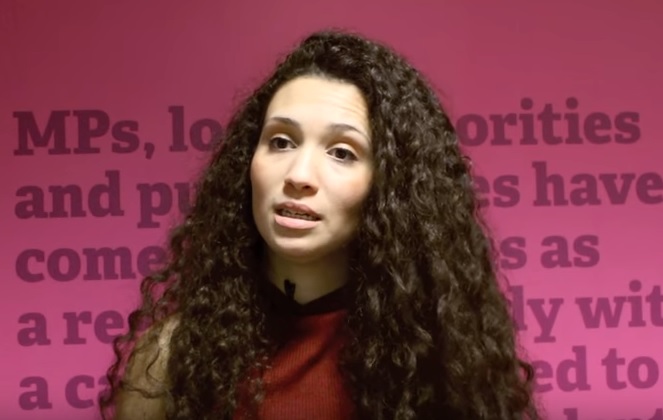Malia Bouattia is a controversial figure who is splitting the National Union of Students (NUS) in the UK. In response to her election as president of NUS, some universities even held referenda on whether or not to leave the organisation completely. These referenda focused on two issues: whether there was a problem with Malia Bouattia’s political views and whether there was a problem with the level of democracy in NUS. However, the first issue barely made it into the debate, at least according to Matthew Price of the Newcastle Students’ Union in an interview with the Economist. The media has largely misunderstood the controversy in their in search for a stor. Indeed, now that several weeks have passed, and people have reflected, the media have rowed back considerably in their characterisation of events. Notably, the claim that Bouattia is anti-Semitic has been debunked. As such, the assertion that the Union of Students in Ireland (USI) has acted improperly by throwing their support to her is over the top.
Malia Bouattia has been accused of being Islamist and anti-Semitic. These allegations appear to stem from the fact that that she requested that a motion on ISIS be delayed in order to include a clause against islamophobia. If this makes her an ISIS supporter, then Trinity’s class reps are in favour of student fees, as they delayed a motion on fees for a month to change the stance on loans. One must ask whether this would have made headlines at all if Bouattia wasn’t a Muslim woman and an immigrant. The accusation of anti-Semitism also has little foundation. It is based on two facts: she has declared herself as “anti-Zionist”, and was called anti-Semitic in a letter written by the Birmingham University Jewish Society. However, she responded to these accusations and the second open letter had only a fraction of the number of signatories. The President of Birmingham University Jewish Society had only the allegation that the word Zionism is “coded anti-Semitic language” and has commented that “when someone attacks Zionism they’re indirectly attacking Judaism as a religion, because the two go hand in hand”. However, Zionism is the belief that Israel should be a Jewish state. As the many Jewish Anti-Zionist groups can testify, Israel is a political issue as well as a religious one and one is able to oppose it without being anti-Semitic.
Claiming that this is anti-Semitic is disingenuous considering that she passed a motion explicitly against anti-Semitism on campus in recent weeks
Malia Bouattia can be fairly accused of the pejorative use of the word “Zionist” in her claims that certain institutions – British media, her university and a Jewish Society – are biased towards Israel. However, that is the sum of it, and claiming that this is anti-Semitic is disingenuous considering that she passed a motion explicitly against anti-Semitism on campus in recent weeks. Furthermore, Students’ Unions in the UK are disaffiliating with NUS due to reasons beyond Bouattia’s election: NUS is viewed as opaque and unrepresentative, with complaints resembling those given by UCD for not joining USI. Recent events have sharply reminded students that they pay the NUS to be their voice despite knowing little about it, and this has led to much of the recent conflict between SUs and the body that represents them. Malia Bouattia is not the sole reason for this upheaval.
This is not to say USI should agree with or endorse these very critical views, but it is not something we should care about either. USI has no issue with what she has announced she will do as a President – campaign for access to education and lower fees – and there is no indication that she intends to use her position to campaign for her views on Israel. It is not the job of USI to chastise the person elected by UK students for comments unrelated to her position. Above all, sending her a congratulatory tweet is basic etiquette, not an endorsement or excessive support. The alternative is cutting communication, which is hardly possible considering our trilateral agreement for cooperation in Northern Ireland.
In essence, the entire affair is overblown. Now that we have had time to reflect, we can see that though Malia Bouattia is splitting the NUS, she is not the fanatic she has been made out to be. It is wrong to argue that sending a tweet acknowledging her election sets a concerning precedent, or is even a show of support for her controversial ideas. Distancing ourselves is not an option, and so reading too much into a polite tweet is making a mountain of a molehill in this regard.







